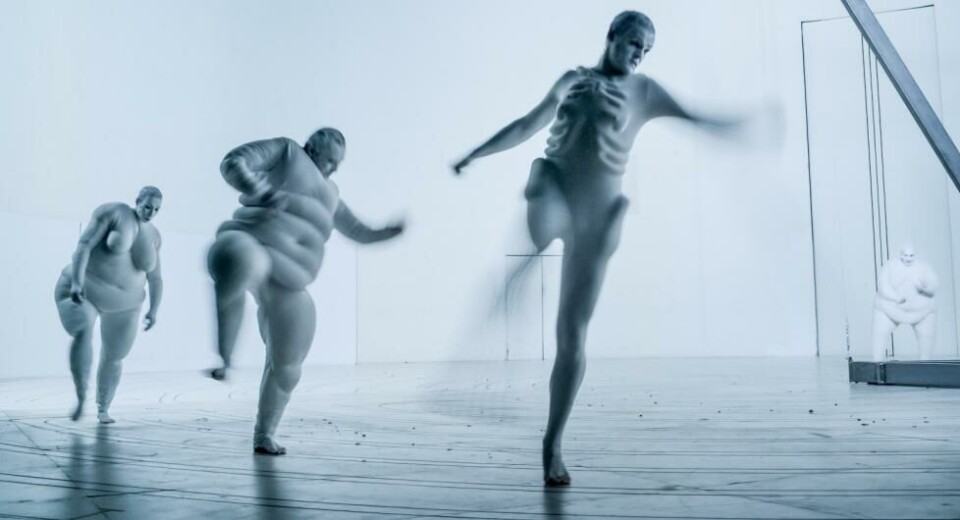
The Magic Camera
Theatertreffen 2021 is a streaming festival taking place at this very special moment when theatres are permitted to perform shows without an audience. Out of the top ten invitations, Sebastian Hartmann’s cinematographic variations on Thomas Mann's «Der Zaubergberg» («Magic Mountain») is a radical attempt to work creatively with the medium beyond merely filming a performance in an empty theatre.
In the beginning, we seem to be watching an endless snow-storm; an overwhelming whiteness that devours everything until figures in greyish-white
bodysuits emerge. That’s certainly not the Magic Mountain we know from Thomas Mann’s novel, with its panoramic society in salons and love affairs at the ‘Russian table’ in a Swiss tuberculosis sanatorium. These days, nobody needs to be reminded of the connection between breath, whiteness and a disease of the lungs, and hence nobody would expect a special Corona interpretation of the famous book. It is inherent anyway, and the isolation of the characters vaguely extracted from the novel is doubled and intensified by their isolation in the empty main stage of Deutsches Theater in Berlin.
Agony under the alps
Sebastian Hartmann’s interest in the Magic Mountain concerns the issue of time that stretches until it can no longer be measured or felt in the snowy dreamscape. This comes as a surprise even when you know the novel quite well, because time is also an issue in theatre, especially in times of lockdown. This is where the director with his dream-like production explores something that easily connects with our experience in manifold associations of a timeless standstill, a sort of agony under the Alpine mountains that the painter Tilo Baumgärtel provides as a backdrop when the foggy whiteness momentarily disappears.
The bodysuits by costume designer Adriana Braga Paretzki (whom Hartmann shares with Frank Castorf) makes for a strong irritating effect for the seven actors. Stripped off their human individual appearance, you wonder whether these suits are for protection, an expression of the disease or simply a theatrical form of nakedness. It could be seen either way, at the expense of identifiable characters from the novel or what they exchange in their philosophical dialogues. Hartmann is known for his special approach to big novels: the works of Tolstoy, Dostoevsky, Hermann Hesse and Alfred Döblin were not chosen for regular literary adaptations, but rather as material for new associations by the director that sometimes puzzled and annoyed audiences.
Inventive graphic effects
However, the most inventive aspect of The Magic Mountain is the livestreamed film. Jan Speckenbach, who first developed the video work for Castorf some 20 years ago, directs six live cameras operated by a crew of four all around and on the stage. The special editing and graphic effects is the actual art at work.
The principal mode of the cameras is the closeup that dissolves while some shots appear with graphic patterns far beyond the photographic qualities of regular camera images. That way, Hartmann and Speckenbach achieve something that transcends carefully filmed theatre and becomes video art or a form of cinematographic experiment. That’s not to say all this is made only to showcase such effects. The sometimes-blurred images can also evoke the fragile relations between the characters, their perception or our vision of them. For the viewer’s pleasure one should have a screen as large as possible to capture the visual power of the many effects.
The most inventive aspect of «The Magic Mountain» is the livestreamed film by Jan Speckenbach
Technical conditions forced by circumstance
The 58thedition of the Berlin Theatertreffen will be remembered as presentations of digital technology; not a revolution, but rather as technical conditions forced by circumstances. We cannot yet know what the long term consequences will be, but experiments like that by Hartmann and his team will be part of a hybrid form of theatre that in the future will exist somewhere between the stage and the screen. This will happen in order to find, hopefully, new realms of the magic. (Published 21.05.2021)
